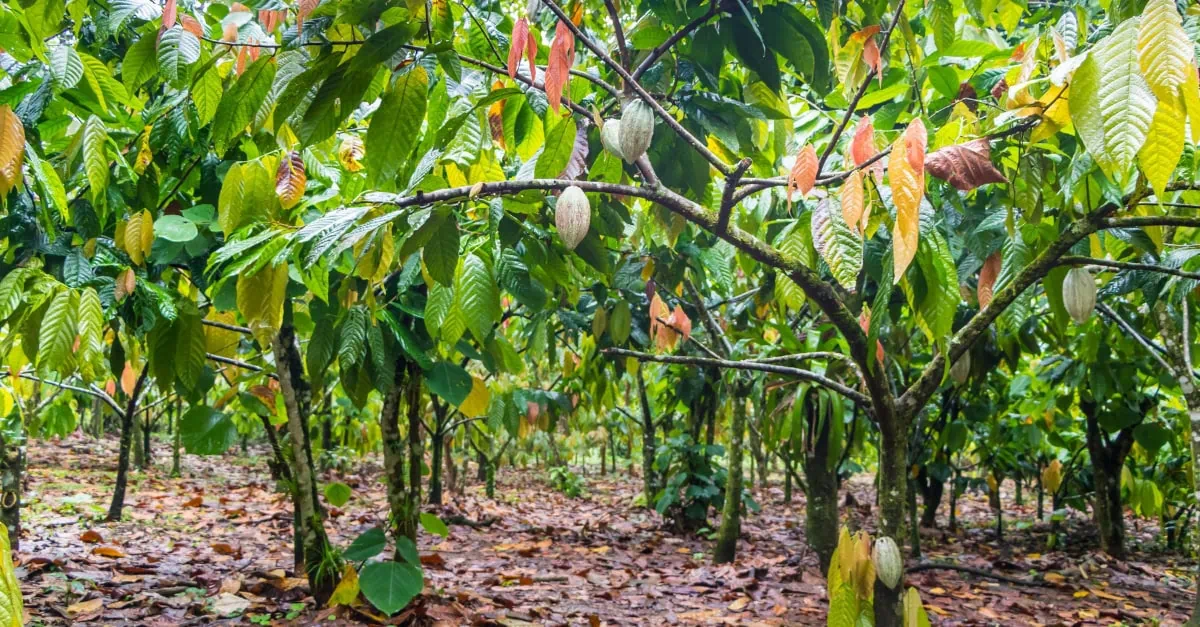The European Union’s Deforestation-Free Products Regulation has created significant compliance challenges for cocoa exporters, though a proposed second delay may provide much-needed relief for struggling supply chains.
Originally set to take effect January 2026, the regulation requires commodities like cocoa entering European markets to be proven free from recent deforestation. However, Environment Commissioner Jessika Roswall announced Tuesday that the commission will propose postponing implementation by another 12 months to late 2026.
The proposed delay follows mounting pressure from exporters and importers struggling to establish the complex systems needed to prove deforestation-free sourcing, with officials citing technical concerns about the sophisticated tracking systems required for compliance.
Liberia warned over deforestation credibility
The possible delay comes as key cocoa-producing regions face mounting pressure to demonstrate compliance readiness. The EU’s head of delegation to Liberia has warned that the country’s credibility as a cocoa exporter could be undermined if production continues to be linked to deforestation.
Ambassador Nona Deprez cited growing concerns over Burkinabe migrants felling trees for farmland in southeastern Liberia.
“Having Burkinabe in the country and deforesting in order to plant cocoa, or having a lot of illegal logging, is detrimental to the reputation of Liberia as an exporter in those products,” Deprez said during a press briefing in Monrovia.
Liberian security officials have reported a steady influx of Burkinabe nationals, many fleeing terrorism and climate-driven hardship at home. EU Special Representative for the Sahel Joao Gomes Cravinho said most are farmers searching for land.
Deprez noted that many of these migrants “don’t come in on their own” but are “sometimes called in by landowners to help to deforest or to help to cultivate.”
Standard controls for Liberia under new regulation
Though Liberia’s cocoa output is small compared to Côte d’Ivoire and Ghana, the regulation will subject Liberia to scrutiny when implemented. Deprez explained that “Liberia is in the standard category” with “standard controls, but these controls will depend also, of course, on the credibility of Liberia as an exporter.”
The ambassador pointed to Côte d’Ivoire’s cocoa situation, noting: “You can see it in Côte d’Ivoire now because their cocoa production is decreasing because of climate change–because of too much sun.”
She stated: “It is absolutely possible to produce cocoa and to cultivate cocoa without deforesting. In fact, it is much more sustainable if you produce cocoa under a forest coverage.”
Implementation challenges persist despite delay hopes
The regulation presents significant implementation challenges that the additional delay aims to address. Importers must collect precise data identifying the plots of land where commodities were grown, using sophisticated tracking systems enforced through the threat of fines.
Deprez noted that “the big rubber companies are equipped” but “they buy from smallholders, and those smallholders also need to be equipped to prove that their production has not contributed to deforestation.”
The compliance process involves complex geolocalization requirements. As Deprez explained: “It’s about being able to prove that this was already cultivated land so many years ago and it continues to be cultivated.”
Many companies have welcomed news of the potential extension, with some industry representatives describing the relief of having additional time to establish proper compliance systems before the regulation takes effect.
Brazil aims for deforestation-free expansion
Brazil aims to become a cocoa powerhouse through its Inova Cacau 2030 plan, targeting doubled output to 400,000 metric tons by 2030 while restoring 120,000 hectares of degraded pastureland.
The country is pursuing agroforestry systems such as Bahia’s cabrucas or cocoa cultivation on degraded pastures in Pará to aid compliance with the EU Deforestation Regulation. Barry Callebaut has stated that Brazil is “emerging as one of the most favorable origins for assessing and mitigating deforestation risk, surpassing leaders Côte d’Ivoire and Ghana.”
Brazil’s approach includes canopy farming – growing cocoa under taller trees – to preserve forests and ecosystems. Research shows that shaded systems that enhance pollination can lift yields by up to 20%.
Potential relief for strained supply chains
The proposed delay could provide significant relief for cocoa supply chains already strained by tight global markets and compliance preparation costs. Coffee and cocoa futures extended declines following news of the postponement, with both robusta and arabica coffee falling more than 3%.
The additional year would ease immediate pressure on availability of compliant cocoa beans in an already constrained global market, where cocoa prices remain nearly three times their 2016-23 average due to structural supply issues in West Africa.
However, environmental groups have criticized the delay, arguing that postponing the regulation means continued forest loss while companies prepare for compliance.
The European Parliament and member states will negotiate on the final shape of the law, potentially opening the door to further simplifications that could ease compliance burdens for exporters.
This content is part of a full cocoa market analysis. For the full analysis, visit: https://app.vespertool.com/market-analysis/2296
